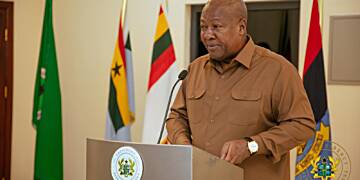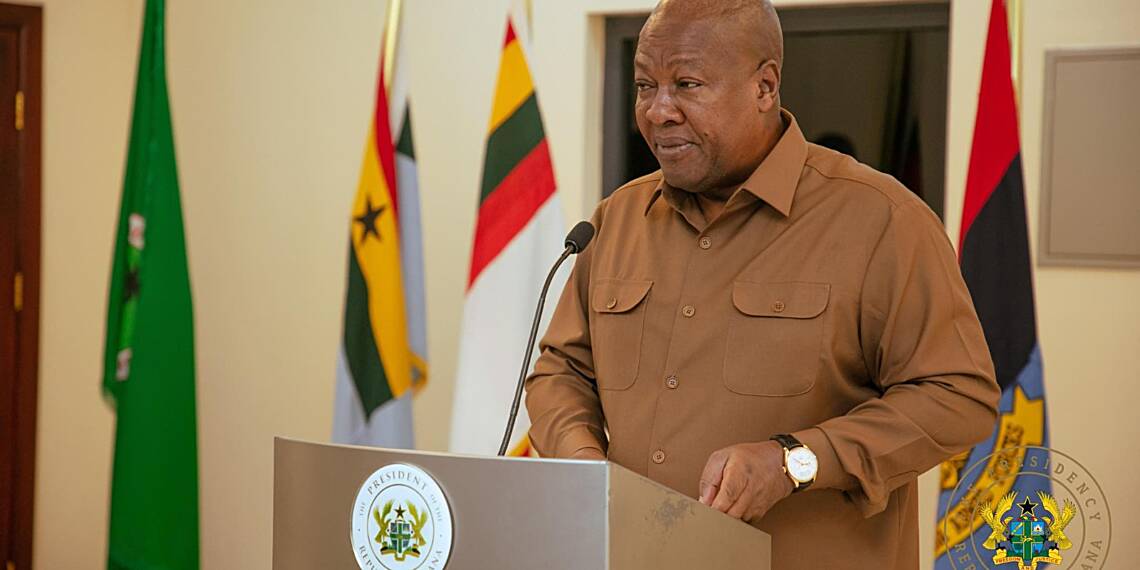President John Dramani Mahama has announced the imminent rollout of the government’s flagship 24-Hour Economy Policy, a transformative initiative aimed at boosting productivity, job creation, and economic inclusivity.
Speaking at a multi-sectoral engagement at the Jubilee House, the President revealed that he has reviewed the final draft of the policy and is confident in its ability to deliver tangible results.
“I have reviewed it, and I’m confident we now have a coherent and actionable framework with which to deliver the results”.
To ensure effective implementation, the government will establish a 24-Hour Economy Secretariat, which will function as an independent authority reporting directly to the President.
“To guarantee institutional stability, I’m working with Parliament to establish the 24-hour economy secretariat as an independent authority, backed by legislation”.
A major highlight of the policy is the development of the Volta Lake Economic Corridor, which will transform the lake into a national logistics route.
“This corridor, centred on the Volta Lake and the Volta Basin, will become a national production zone and logistics hub”.
The plan envisions; cultivating over two million hectares of arable lakeside land, revitalizing the fishery sector, and creating industrial parks to produce goods for domestic and regional markets.
To support this, the government will invest in new floating assets, lake ports, and long-term partnerships to activate the lake as a transport highway, easing congestion on roads and improving the movement of goods and people.
President Mahama emphasized that the 24-Hour Economy Policy is not just a vision but a structured plan designed to drive job creation and inclusive growth.
The program will focus on priority value chains across all regions, including: Agro-processing, Pharmaceuticals, Textiles, Light manufacturing, Tourism, Digital services, and the creative economy.
Infrastructure development will be spearheaded by the Ghana Infrastructure Investment Fund, overseeing the construction of industrial parks, logistics hubs, and transport link upgrades.
President Mahama revealed that, financial support will come from the Development Bank of Ghana and the Venture Capital Trust Fund, which will scale up value chain finance for SMEs, cooperatives, and agribusinesses.
The government also plans to develop local land banks, ensuring they are zoned, titled, and investment-ready to reduce delays for investors.
Additionally, the Aspire24 sub-program will train young people for shift-based work, digital roles, and entrepreneurship, equipping them with the skills needed to thrive in a 24-hour economy.
Mahama assured that the policy would be decentralized, allowing each district to establish its own implementation task force within municipal assemblies.
“This will allow each region to define and lead its path of industrial transformation based on its natural comparative advantages”.




















